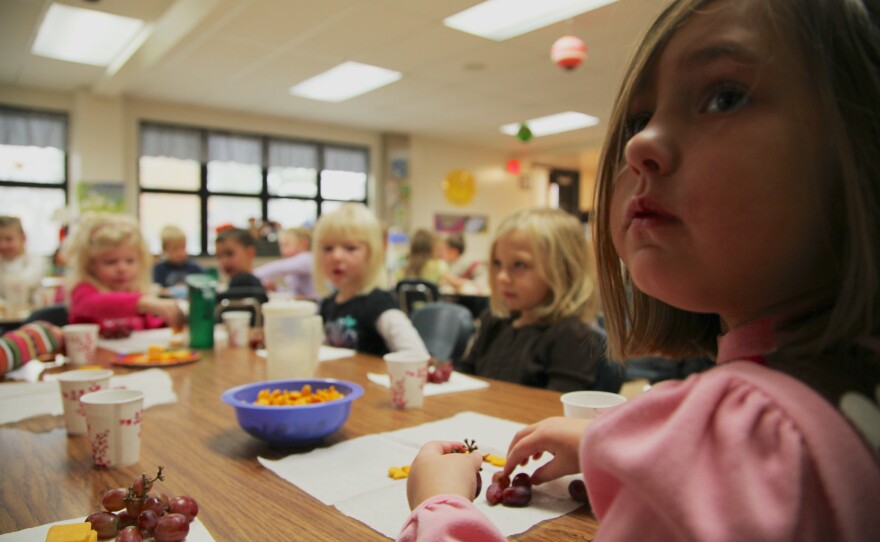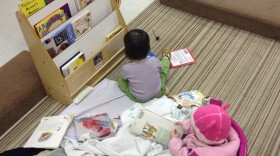Locals joke that the village of Stockbridge, Michigan is a 45 minute drive from anywhere. Apart from a few small businesses there’s really nowhere to work and a lot of families struggle to get by. In rural places like Stockbridge families rely on the public community schools for the educational opportunity that is one of very few ways kids from these towns can get a leg up.
Stockbridge gets described as "country," meaning the landscape and the mindset of the people. But of course that is too simple of a characterization. There is mud bogging with 4x4's and custom vehicles for those who are interested, but there's also a nice coffee shop that serves a great latte. Even so, without a plan or an education it can be easy to get stuck in Stockbridge without money, a job or a future.
Stockbridge's preschool program educates well over half of their incoming kindergarten class.
Stockbridge has doubled down on providing the best public education they can to make up for the lack of economic opportunity. About 15 years ago, the schools started trying to convince parents that high quality preschool was worth their hard earned money. By now, some of them don’t need any more convincing.
Autumn Blakeman is one of those parents. Twenty five and a stay-at-home mom for Christopher and her baby Jonathan she and her husband arrange a lot around the education of their kids. Once a week she takes them both to a free playgroup at the local elementary. It’s open to anyone and run by early childhood experts from a county program.
Christopher started coming to playgroup because he was too young for preschool. But as soon as he turned two and a half, his parents put him in school. He started the very next day at a preschool run by the school district.
"I'm a research junkie, I google a lot." Blakeman explains. "The first five years are the most important, and the more exposure they get early on, the more things they'll end up loving in the long run."
Lots of school districts, even rural ones, offer preschool. But, the Stockbridge schools educate well over half of their incoming kindergarten class. The town has only two other licensed day care facilities, and they can serve 18 kids, combined. If the district hadn’t stepped up very few kids would be really ready for kindergarten.
Both the district and some families feel the strain of paying for high quality early education. More than 40 percent of the kids qualify for free or reduced lunch in Stockbridge. To send a kid younger than four to preschool in the district parents need to come up with tuition. Then, the state subsidizes classes for a lot of, but not all, four year olds through the Great Start Readiness Program (GSRP).
The district is hoping it might get more slots if Governor Snyder's budget request for more GSRP funding goes through. Even if they do get more slots, they're likely to keep around a six-week pre-kindergarten crash course they offer to kids who haven't gone to preschool.
Autumn Blakeman and her husband can only afford to send Christopher to school two days a week. Blakeman’s husband, also named Christopher, works two jobs to support the family. They don’t want their sons to have to work quite so hard. She thinks preschool will help.
“My husband is also a full time student, and he didn’t enjoy school." Blakeman explains. "So that was another motivator. We didn’t want Christopher (sic) to be thirty years old with two children trying to balance income and school and everything, so we felt it was worth the cost.”
Not all parents in Stockbridge are as committed as the Blakeman’s to early ed., but I met a lot that were. The district is scrambling to erase a three quarter of a million dollar budget deficit by the end of the year, but is loath to mess with preschool funding. Blakeman says she wants preschool to be there for her son.
“I want him to enjoy school. I want him to enjoy his education and I want him to go all the way through college. And I think that starts early.”
To give us a view inside Stockbridge's preschool program Stockbridge Youth Journalist Angie Eagle lets us listen in on a back and forth between two four-year-olds and their teacher. It provides some answers to the question of how kids learn in that environment.













